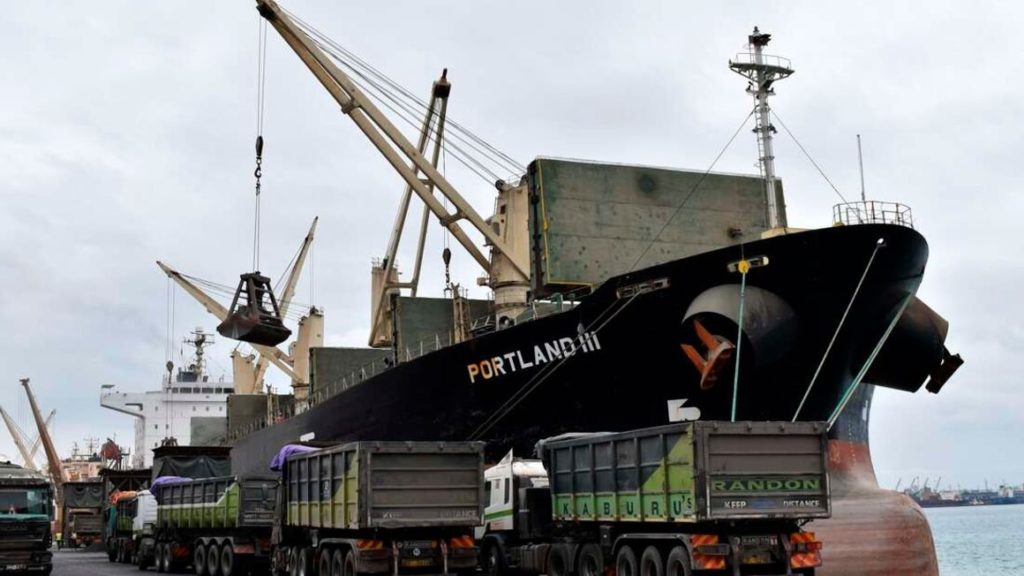A clinker is offloaded at the Port of Mombasa on August 16, 2020. PHOTO | WACHIRA MWANGI | NMG In a report dated September 2021, the National Independent Clinker Verification Committee noted that an increase in duty on imported clinker is likely to have a trade redirection in favour of Egypt.
In 2020, the supply for locally produced clinker was 3.8 million tonnes against a demand of 5.3 million tonnes of clinker, with factories operating at 65 percent of their installed capacity.
All other factors held constant, the net effect of increasing of clinker import duty to 25 percent from 10 percent, is a 15 percent price increase for locally produced and imported clinker.
Kenya’s cement manufacturing sector is grappling with a clinker shortage of 3.3 million tonnes, with 59 percent of the deficit being imported into the country duty-free from Egypt, a report by the National Independent Clinker Verification Committee released last week showed.
The committee tasked with assessing the status of clinker in the country following a dispute among market players on whether to increase duty on imported clinker to 25 percent from 10 percent, observed that even if both cement grinding and clinker production companies operated at full capacity, the country will still have to import 40 percent of the clinker.
In a report dated September 2021, the National Independent Clinker Verification Committee noted that an increase in duty on imported clinker is likely to have a trade redirection in favour of Egypt by virtue of the two countries belonging to a common Customs union under the Common Market for Eastern and Southern Africa (Comesa) free trade area arrangement.
Of the 40 percent of clinker imported into the country, 60 percent originates from Egypt at zero tariff rate.
Last year, Egypt and the UAE accounted for 92 percent of the clinker imported by Kenyan companies, with seven percent coming from Saudi Arabia.
“Thus, new investment or expansion of current plants in clinker production will minimise the shortfall,” says the report.
In 2020, the supply for locally produced clinker was 3.8 million tonnes against a demand of 5.3 million tonnes of clinker, with factories operating at 65 percent of their installed capacity. Common External Tariff
According to the report, even if the factories operate at full capacity, the country will still face a clinker shortage of 3.3 million tonnes, which has to be offset through imports.Clinker is charged 10 percent duty as […]
